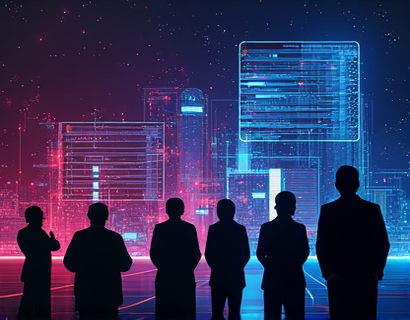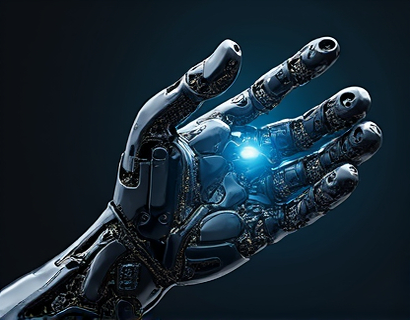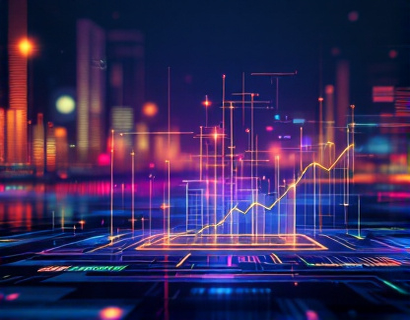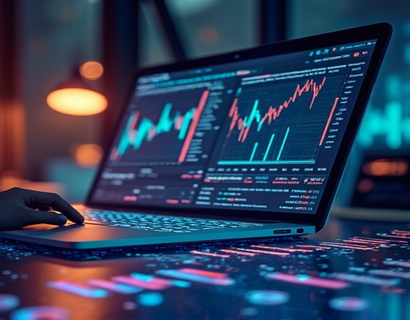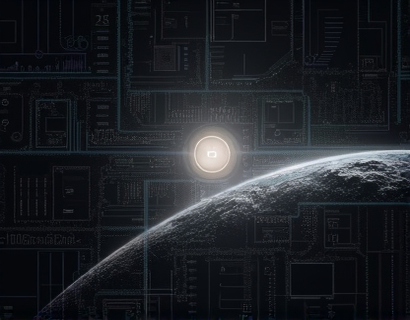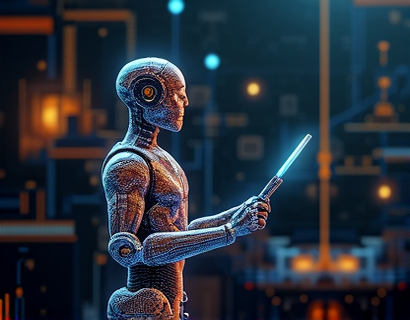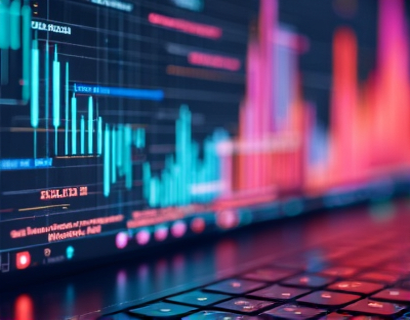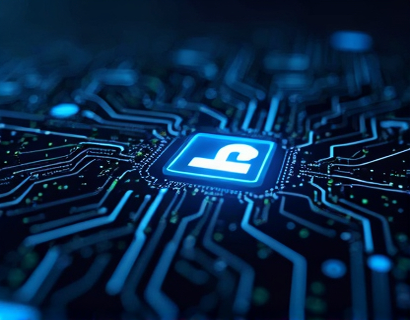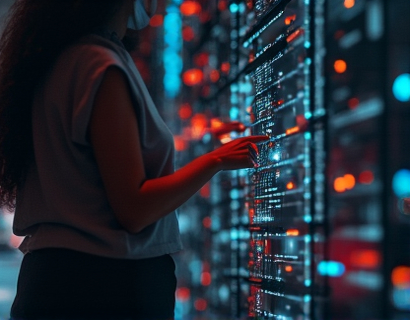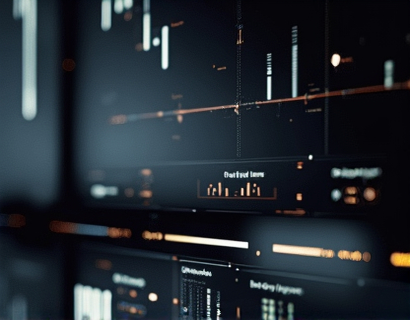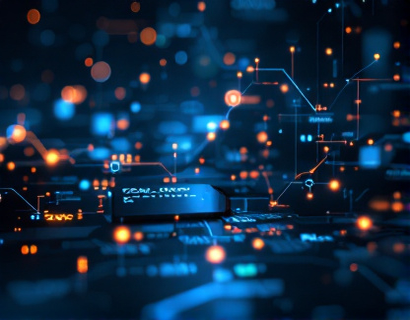Crypto and AI: Pioneering Digital Transformation for Enhanced Ucosystem Experiences
The intersection of blockchain technology and artificial intelligence (AI) is ushering in a new era of digital transformation, fundamentally altering how we interact with online platforms and services. This synergy is not just a technological curiosity but a powerful force driving substantial growth and engagement in the digital landscape. For tech innovators and early adopters, understanding and leveraging this convergence is crucial for staying ahead in a rapidly evolving market. This article provides a comprehensive guide to harnessing the potential of blockchain and AI to enhance digital experiences and foster unprecedented connectivity.
The foundation of this transformation lies in the unique properties of blockchain technology. Blockchain, at its core, is a decentralized ledger that ensures transparency, security, and immutability. These attributes make it an ideal platform for building trust in digital interactions. By eliminating the need for intermediaries, blockchain reduces costs and increases efficiency, paving the way for more direct and seamless user experiences. In the context of digital ecosystems, blockchain can facilitate secure and transparent transactions, manage identity verification, and ensure data integrity, all of which are critical for building robust and reliable online environments.
Artificial intelligence, on the other hand, brings a different set of capabilities to the table. AI's ability to process and analyze vast amounts of data in real-time enables personalized and context-aware interactions. Machine learning algorithms can predict user behavior, optimize content delivery, and enhance user engagement through tailored recommendations. When combined with blockchain, AI can operate on a trustless and secure foundation, further enhancing the reliability and effectiveness of digital services. This integration creates a synergistic effect, where the strengths of both technologies complement and amplify each other.
Enhancing Security and Trust
One of the most significant benefits of combining blockchain and AI is the enhancement of security and trust in digital ecosystems. Blockchain's inherent security features, such as cryptographic hashing and consensus mechanisms, provide a robust framework for protecting data and ensuring integrity. AI can augment this by detecting and mitigating potential security threats in real-time. For instance, AI-driven anomaly detection systems can identify unusual patterns or behaviors that may indicate a security breach, allowing for immediate action to be taken. This proactive approach to security is essential in an era where data breaches and cyber attacks are increasingly common.
Moreover, blockchain's decentralized nature reduces the risk of single points of failure, making systems more resilient against attacks. AI can further enhance this by continuously monitoring the network for vulnerabilities and suggesting improvements. The combination of these technologies ensures that digital ecosystems are not only secure but also trustworthy, fostering greater user confidence and adoption.
Personalization and User Experience
Personalization is a key driver of user engagement and satisfaction in the digital age. AI algorithms excel at analyzing user data to create personalized experiences that resonate with individual preferences and behaviors. When integrated with blockchain, this personalization can be achieved in a privacy-preserving manner. Blockchain's decentralized storage and zero-knowledge proof technologies allow for the secure and private sharing of user data, ensuring that personal information remains under the user's control.
For example, in a digital content platform, AI can analyze a user's viewing history and preferences to recommend articles, videos, or other content that aligns with their interests. Blockchain can ensure that the user's viewing data is stored securely and that the recommendations are generated transparently and without manipulation. This not only enhances the user experience but also builds trust, as users are more likely to engage with platforms that respect their privacy and provide genuine recommendations.
Optimizing Content Delivery
Efficient content delivery is crucial for maintaining user engagement and reducing latency. AI can optimize content delivery by dynamically adjusting the delivery parameters based on real-time network conditions and user location. Machine learning models can predict the best routes for data transmission, ensuring that content is delivered quickly and reliably. This is particularly important for multimedia content, such as videos and live streams, where delays can significantly impact user experience.
Blockchain can complement this by providing a decentralized content delivery network (CDN). In a blockchain-based CDN, content is stored across a network of nodes, each verified and secured by the blockchain. This decentralized approach reduces the load on central servers and minimizes the risk of bottlenecks. AI can manage the distribution of content across these nodes, ensuring optimal performance and availability. The result is a more resilient and efficient content delivery system that enhances user satisfaction and reduces operational costs.
Tokenization and Incentivization
Tokenization, a concept deeply rooted in blockchain technology, offers a innovative way to incentivize user participation and engagement. By issuing tokens that represent value within a digital ecosystem, platforms can reward users for contributing content, participating in discussions, or providing other valuable services. These tokens can be used to purchase goods and services within the ecosystem, creating a self-sustaining economic model.
AI plays a crucial role in designing and managing token economies. Machine learning algorithms can analyze user behavior to determine the optimal distribution and value of tokens, ensuring that incentives are aligned with desired outcomes. AI can also predict market trends and adjust token prices dynamically, maintaining the economic balance of the ecosystem. This combination of blockchain and AI enables the creation of vibrant and active communities, where users are motivated to contribute and engage.
Data Ownership and Privacy
Data ownership and privacy are increasingly important concerns in the digital world. Blockchain technology provides a framework for users to own and control their data, ensuring that they have the final say in how their information is used. By storing data on a blockchain, users can grant or revoke access to their information as needed, without relying on intermediaries. This empowers users and promotes a more equitable digital landscape.
AI can enhance data privacy by implementing advanced encryption and anonymization techniques. For instance, differential privacy, a method that adds noise to data to protect individual identities, can be combined with AI algorithms to provide insights without compromising user privacy. Blockchain ensures that these processes are transparent and verifiable, giving users confidence in the protection of their data. This synergy between blockchain and AI not only safeguards user privacy but also fosters greater trust in digital platforms.
Case Studies and Real-World Applications
Several real-world applications demonstrate the transformative potential of combining blockchain and AI. One notable example is the use of blockchain-based identity verification systems powered by AI. In regions with high rates of identity fraud, these systems can provide secure and reliable identity verification, reducing fraud and enhancing user trust. AI algorithms analyze biometric data and other identifiers, while blockchain ensures the integrity and immutability of the verification process.
Another application is in the realm of supply chain management. Blockchain can track the movement of goods across the supply chain, ensuring transparency and traceability. AI can analyze this data to optimize logistics, predict demand, and identify inefficiencies. For instance, a company like Walmart has implemented a blockchain-based system to track the origin and journey of food products, combined with AI to monitor and optimize the supply chain in real-time. This not only enhances efficiency but also ensures food safety and quality.
Challenges and Considerations
While the potential of blockchain and AI is vast, there are several challenges and considerations that must be addressed. Scalability remains a significant issue for blockchain technology, as many networks struggle to handle high transaction volumes efficiently. Research into layer 2 solutions and more efficient consensus mechanisms is ongoing, but practical scalability solutions are still evolving. AI, on the other hand, faces challenges related to data bias, ethical considerations, and the need for explainable AI to build user trust.
Regulatory frameworks are another critical aspect to consider. As blockchain and AI technologies develop, governments and regulatory bodies are beginning to establish guidelines to ensure responsible use. Compliance with these regulations is essential for the widespread adoption of these technologies. Additionally, the integration of blockchain and AI requires a multidisciplinary approach, involving expertise in both domains to fully realize their potential.
Future Outlook
The future of digital transformation through the integration of blockchain and AI is promising. As these technologies continue to mature, we can expect to see more innovative applications across various industries. From healthcare, where blockchain can secure patient records and AI can enhance diagnostic accuracy, to finance, where decentralized finance (DeFi) platforms powered by AI can offer more efficient and accessible financial services, the possibilities are vast.
For tech innovators and early adopters, embracing this convergence is key to staying competitive and relevant. By understanding the synergies between blockchain and AI, and by exploring practical applications, these individuals can drive meaningful change and create value in the digital ecosystem. The journey ahead is exciting, and those who lead the way will be at the forefront of a new digital revolution.



